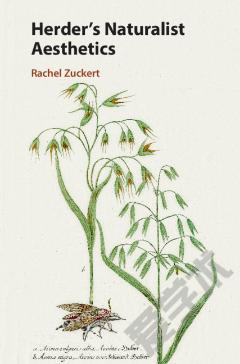Herder's Naturalist Aesthetics
In this book, rachel zuckert provides the first overarching account of johann gottfried herder's complex aesthetic theory. She guides the reader through herder's texts, showing how they relate to eighteenth- and nineteenth-century european philosophy of art, and focusing on two main concepts: aesthetic naturalism, the view that art is natural to and naturally valuable for human beings as organic, embodied beings, and - unusually for herder's time - aesthetic pluralism, the view that aesthetic value takes many diverse and culturally varying forms. Zuckert argues that herder's theory plays a pivotal role in the history of philosophical aesthetics, marking the transition from the eighteenth-century focus on aesthetic value as grounded in human nature to the nineteenth-century focus on art as socially significant and historically variable.
{{comment.content}}








 京公网安备 11010802027623号
京公网安备 11010802027623号